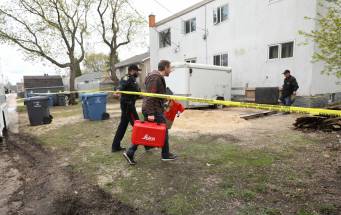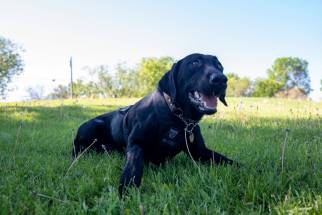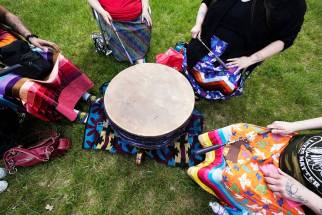Canine comfort Emotional support dogs offer paw for students to lean on
Read this article for free:
or
Already have an account? Log in here »
To continue reading, please subscribe:
Monthly Digital Subscription
$19 $0 for the first 4 weeks*
- Enjoy unlimited reading on winnipegfreepress.com
- Read the E-Edition, our digital replica newspaper
- Access News Break, our award-winning app
- Play interactive puzzles
*No charge for four weeks then billed as $19 plus GST every four weeks. Offer only available to new and qualified returning subscribers. Cancel any time.
Read unlimited articles for free today:
or
Already have an account? Log in here »
Hey there, time traveller!
This article was published 14/06/2022 (924 days ago), so information in it may no longer be current.
Berkley may be a teacher’s pet, but the goofy black Labrador’s calming presence has also made him a beloved classmate at an elementary school in Winnipeg this year.
Whenever the canine enters a classroom at Brooklands School, children greet him with wide smiles and waves. His biggest fans seek him out in the hallway and on the playground to offer endless pets, hugs and belly rubs, which he relishes — as evidenced by a wagging tail.
“He’s a very happy and confident dog, that’s for sure,” said Andrew Sullivan, a support teacher who started taking his puppy to work in early 2022. “And he’s got a lot of love to give.”
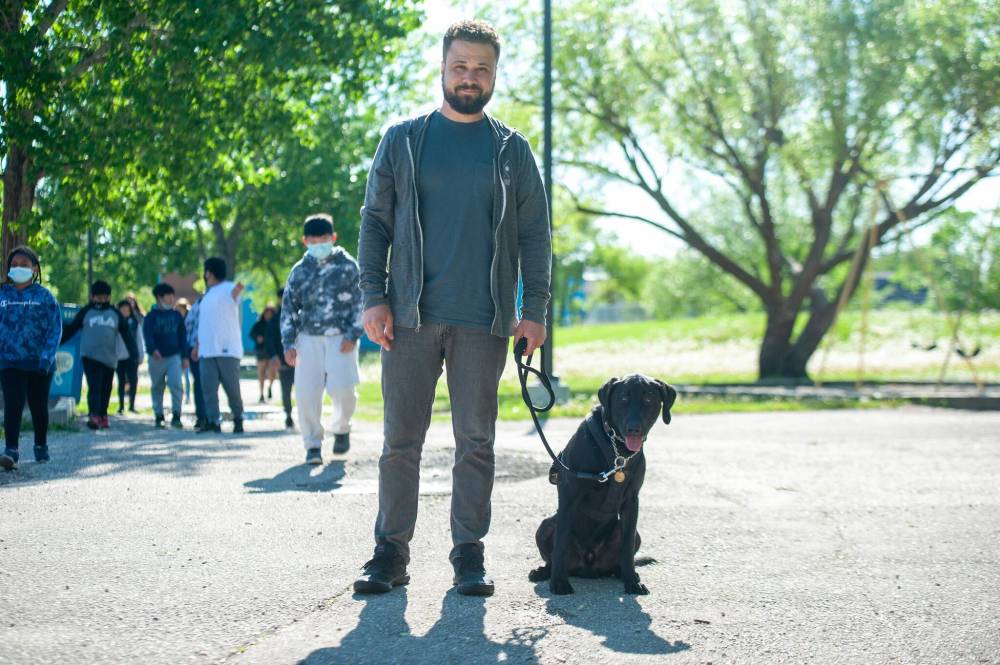
A growing number of principals in the St. James-Assiniboia School Division have welcomed emotional support dogs into their facilities so all students and staff members can reap the benefits of being around an animal throughout the week.
Berkley is the newest addition to the division’s pack. He follows in the pawprints of Lucy, a golden retriever who frequently visits George Waters Middle School, and a furry member of the St. James Collegiate community named Charlie.
Principal Rex Ferguson-Baird, who has worked at Brooklands for upwards of a decade, said he has witnessed Berkley create a positive culture change at the K-5 school in only five months.
“In a community school in a neighbourhood that many would see as underserviced or at-risk, we’re always looking for bridges to make connections between the school and the community, and kids to the home, and to give them some security — and he definitely does that,” he said.
Ferguson-Baird said Berkley’s temperament immediately settles a room. The puppy’s presence has resulted in fewer calls home to parents this year because the dog has helped students in distress quickly regulate their emotions, the principal added.
The act of petting a dog in and of itself is therapeutic and can lower a human’s blood pressure, scientific studies show.
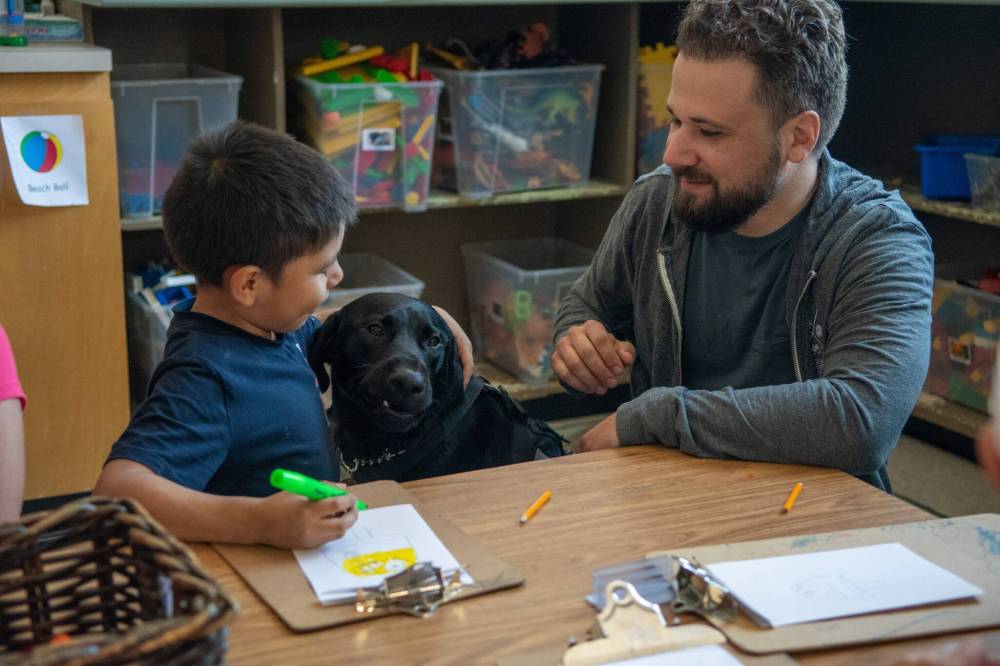
For that reason, Winnipeg dog trainer George Leonard likened a certified support canine to a medical device. Combined with a teacher’s professional expertise, therapy dogs have immense potential to benefit students, said the owner of MSAR Service Dogs.
“Some kids have social issues and they find it easier to work with a dog, to be around a dog (because) there’s no judgment,” Leonard said.
Labrador retrievers, golden retrievers, golden doodles and poodles are the top breeds for this kind of work because they are smart dogs who are great with children and families, he said, noting therapy dogs can be found everywhere from hospitals to psychologist offices.
It was following a one-on-one session with a middle schooler in 2018 — during which the student indicated they would feel better if there was an animal around — that guidance counselor Myriame Orloff said she started to ponder the idea of taking her dog to school.
Orloff consulted her administrators and enrolled her companion in the Canine Good Neighbour Program. She received a greenlight from the division after sharing up-to-date veterinary information and a program proposal.
Lucy, an eight-year-old retriever, became a regular visitor to George Waters in early 2019.
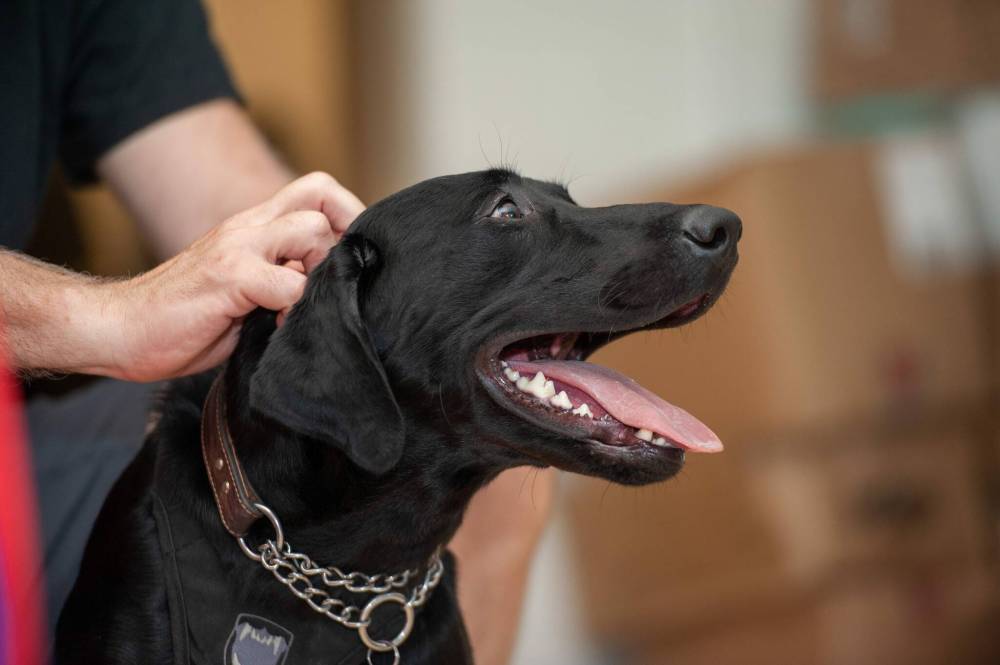
“Kids are coming in more anxious and more leery of the world and unsure of how they fit into the world, and she allows them this place of feeling safe and calm in order to be able to express that,” Orloff said. “They are more likely to tell Lucy what’s upsetting them, than an adult.”
While COVID-19 has complicated attendance in recent years, she said the middle school recorded a decrease in absenteeism on designated Lucy days during the 2019-20 academic year.
Educators across the division indicated their respective support dog brings immense joy to their community, in addition to providing emotional and academic support — including being listening ears to struggling readers who can practise their literacy skills without judgment in front of the pets.
Geret Coates said the question he gets asked most from students is: “Where is Charlie?”
“Charlie walks through the building, tail wagging, and you can actually see people’s moods changed, people’s moods lifted,” said the high school English teacher.
The golden retriever, who completed the same training as his peer, Lucy, mingles around classes, roams hallways in search of teachers with treat stashes and attends school events with his owner. He has his own school photo in the yearbook.
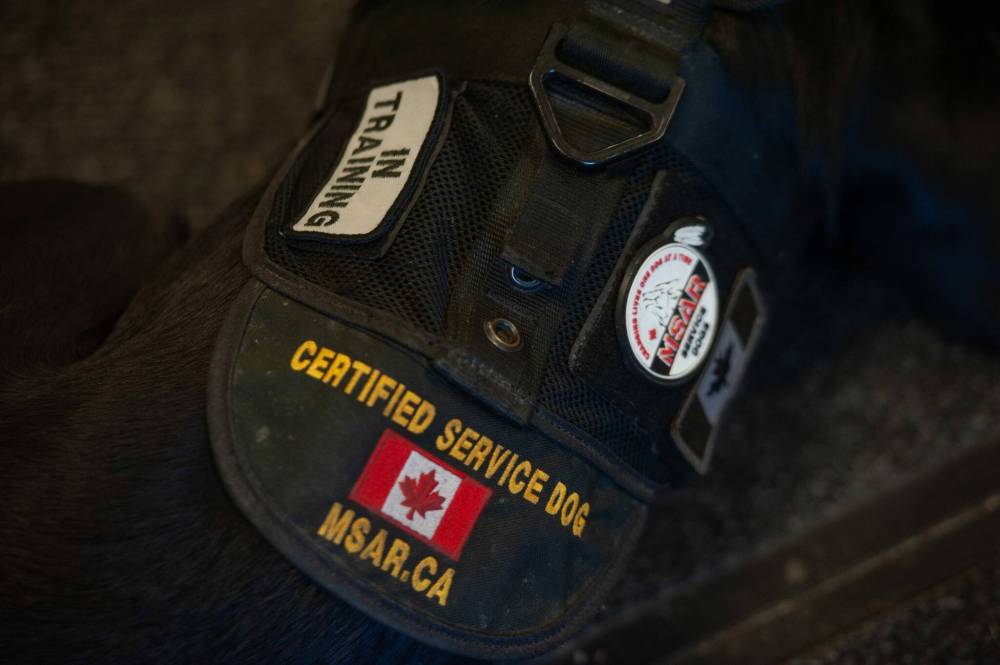
Coates said his dog absolutely adores being at school, but he is exhausted when the two return home because there is no nap time in high school.
Berkley’s owner echoed those sentiments; Sullivan said being an emotional support dog takes a significant toll on the Lab.
To prevent burnout, SJASD dogs don’t work shifts every day.
Berkley, who is the youngest of the pack (he recently had a “pawty” at school to celebrate his first birthday) and currently dons a training vest when he is on the job because he is due for his final “facility dog” exam, works three days per week.
Should he pass a series of MSAR tests — among them: walking around a mall without being spooked by crowds and remaining calm when exposed to other animals, his owner said he will likely continue that routine in 2022-23.

“We’ve done some health classes about empathy and feelings. We talk about our feelings and animals’ feelings – and their needs and our needs,” Sullivan said, adding he has worked closely with staff and students who were afraid of dogs before Berkley arrived to put them at ease with the puppy.
maggie.macintosh@freepress.mb.ca
Twitter: @macintoshmaggie

Maggie Macintosh
Reporter
Maggie Macintosh reports on education for the Winnipeg Free Press. Funding for the Free Press education reporter comes from the Government of Canada through the Local Journalism Initiative.
Our newsroom depends on a growing audience of readers to power our journalism. If you are not a paid reader, please consider becoming a subscriber.
Our newsroom depends on its audience of readers to power our journalism. Thank you for your support.
History
Updated on Wednesday, June 15, 2022 7:16 PM CDT: Fixes typo.
Updated on Wednesday, June 15, 2022 9:31 PM CDT: Fixes typo.


